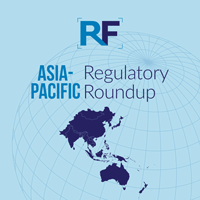Asia-Pacific Roundup: TGA creates regulatory requirements for COVID-19 testing software
 AsiaBiologics/ biosimilars/ vaccinesDiagnostics/IVDsMedical DevicesOceaniaPharmaceuticalsProduct LifecycleRegulatory Intelligence/Policy
AsiaBiologics/ biosimilars/ vaccinesDiagnostics/IVDsMedical DevicesOceaniaPharmaceuticalsProduct LifecycleRegulatory Intelligence/Policy AsiaBiologics/ biosimilars/ vaccinesDiagnostics/IVDsMedical DevicesOceaniaPharmaceuticalsProduct LifecycleRegulatory Intelligence/Policy
AsiaBiologics/ biosimilars/ vaccinesDiagnostics/IVDsMedical DevicesOceaniaPharmaceuticalsProduct LifecycleRegulatory Intelligence/Policy